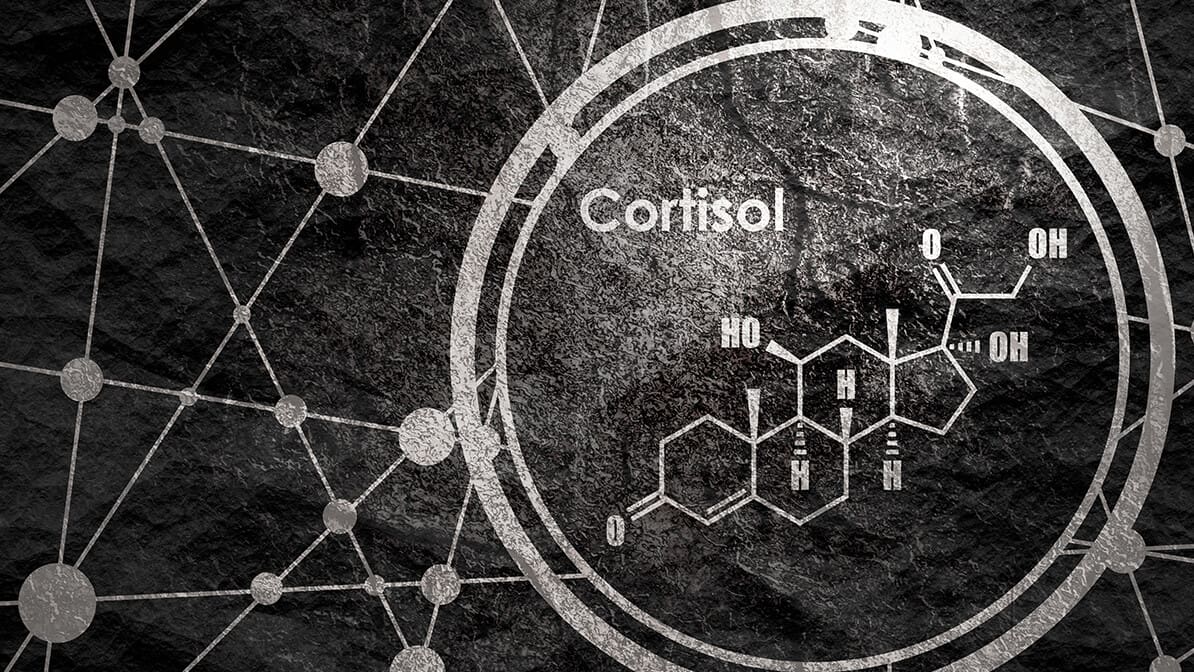
Stress Is Not the Problem: The Problem Is Cortisol
Stress. The word reminds us that we are not in control.
We long to face life with grace, grit, and determination. Unhindered. Free. But too often, the stress of life overwhelms. That’s okay. Stress is not actually the enemy. Cortisol is.
Cortisol is a hormone produced in our adrenal glands. Under normal circumstances our body regulates a daily cycle of cortisol. Our system pumps out the highest levels in the morning to prepare us for the day ahead. Preparing our bodies for the sweet land of slumber, our system naturally reduces the flow to a calming low as we get ready to sleep.
Our brains are very, very good at self-delusion. What happens is, it releases the stress hormone cortisol in the brain, which leads to foggy thinking, so you’re not even able to judge well whether you’re working well or not. ~ Daniel Levitin
Cortisol is also known as the stress hormone. When a tension-filled, fight or flight situation arises, our bodies release an extra, and needed, dose of cortisol. A short-term release and increase of cortisol improves memory, reduces sensitivity to pain, and increases energy and stamina. In short, a quick dose of cortisol is a knight in shining armor.
However, prolonged overexposure to cortisol, whether as a constant trickle or a relentless fire hose, is a dragon breathing down our back. The effects singe and destroy.
Our unhealthy habits attempt to alleviate what ails us, but most are short-sighted, causing more pain and loss in the long run. A rested life is an empowered life.
Too much cortisol …
- damages our brain and negatively impacts our memory and sets us up for Alzheimer’s
- suppresses our immune system, making us vulnerable to both inconvenient and life-altering illnesses
- plays havoc with our mood, our ability to be patient, self- controlled, and kind
- causes weight gain by increasing ghrelin, the hormone that creates the feeling of hunger. Simultaneously, cortisol decreases leptin, the hormone that allows us to feel full after eating. This is a damaging combination.
- sets us up for depression, diabetes, high blood pressure, and osteoporosis
- sabotages our sleep
- damages the cells in our body and shortens our life span
Where do you feel cortisol’s greatest effect? Are you carrying extra pounds that just won’t budge? Does chronic fatigue dog your days? Is your joy in life and relationships dwindling? Is your sleep restless? Does it feel like your brain cells are on strike?
Our modern, deadline-infused lifestyle overtaxes our adrenal glands. Reacting, our adrenals overproduce cortisol. An overabundance of cortisol makes it nearly impossible to sleep and can put you at risk for a heart attack. Raised cortisol also boosts your insulin levels, causing extra pounds to collect, especially around the midsection.
We all develop coping mechanisms to deal with the overproduction of cortisol that has become common in our stress-filled lifestyles.
- Caffeine — we gulp it down in many forms.
- Carbs — we crave the temporary brain boost we get from our favorite snacks.
- Pills — we take all kinds for anxiety, blood pressure, depression, pain, and sleep. Medication is a vital and necessary part of healing. There are times, however, that we swallow a pill to mask a symptom when adding healthy rhythms of rest will solve the root issue.
- Ruts — we cave, falling back into unhealthy routines and habits to form mini vices that provide a quick fix for signs our bodies are weary and worn.
- Moods — running on empty, we rant and rave, pout and complain.
We all have our default setting — our personal set of unhealthy habits to deal with the barrage of daily strain and demands. Our unhealthy habits attempt to alleviate what ails us, but most are short-sighted, causing additional pain and loss in the long run.
Taking time to contemplate what you’re grateful for isn’t merely the ‘right’ thing to do,” said Travis Brandberry. “It also improves your mood because it reduces the stress hormone cortisol by 23 percent.”
Your Turn
Where do you feel cortisol’s greatest effect?
What’s your default setting? Does Romans 7:15 NIV ring true?: I do not understand what I do. For what I want to do, I do not do, but what I hate I do.
What was your default setting five years ago? Ten years ago? What would you like to change about it?
The Solution
The sweet remedy that reduces the damaging effects of too much cortisol is the implementation of a rhythm of work and rest. We work hard. We can learn to rest well.
Rest that works consists of four practices.
- Sleep: Adults require seven to nine hours daily. Less than seven hours of sleep sets us up for trouble. Chronic deficits put us in the grave earlier than expected. With adequate sleep, life looks better, and we make smarter decisions. Sleep rejuvenates us.
- Solitude: When was the last time you gave yourself a break? Carve out opportunities to turn your back on what consumes the best of your time, energy, and attention, and turn toward the people and activities that give you life. Minutes matter. Hours make a difference. A day away delivers. Solitude replenishes us.
- Stillness: Disconnect from distractions. Center your soul. Stillness is the opportunity to listen to your heart, your body, your spirit, to God. Stillness reconnects us with the One who knows our name. Stillness renews us.
- Sabbath: What refreshes your spirit? Sabbath is the weekly practice of doing that which refreshes. One is refreshed by gardening, while another skydives. Sabbath refreshes us.
What practice can you weave into your schedule this week to reduce the damaging effects of cortisol in your body?
Trending Now
Sign up today for your Inspiration Today Daily Newsletter
Supercharge your faith and ignite your spirit. Find hope in God’s word. Receive your Inspiration Today newsletter now!
Brenda Jank
Brenda Jank is the founder of Run Hard. Rest Well. and a thought leader on Restorative Wellness. Brenda and her family of seven live in northeast Indiana. Learn more at runhardrestwell.com
Related Articles
April 29, 2024
Table for Two: Biblical Counsel for Eating Disorders
Excerpt from Table for Two: Biblical Counsel for Eating Disorders by David & Krista Dunham…
April 18, 2024
Have You Ever Said, ‘God, Please Help Me’?
“Pray. Just pray.” What happens when the words won’t come? How do you begin to pray? Rest assured.…
April 15, 2024
I Want to Live
What does God do with a good ol’ southern boy taken captive by the demon of alcohol? He meets him…
Next Steps To Strengthen Your Walk
Submit A Prayer Request
We are here for you. Simply click on the button below to reach us by form, email or phone. Together we will lift our hearts and voices with you in prayer.
Partner WIth Us
Sow a seed of faith today! Your generous gift will help us impact others for Christ through our global salvation outreach and other faith based initiatives.
Inspiration TV
Watch Christian content from your favorite pastors, christian movies, TV shows and more.






